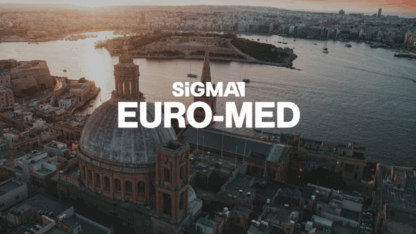Best Sumsub Competitors
Here are six platforms that provide similar capabilities to Sumsub—each with a unique approach to fraud prevention, AML, and identity verification. Whether you’re looking for more customizable controls, deeper data signals, or a unified risk platform, this list highlights how leading vendors differ in coverage, accuracy, and user experience.
SEON
SEON is designed for agile, fraud-focused teams that need precise control, real-time risk insights, and a user-friendly interface. Unlike Sumsub’s compliance-first structure, SEON offers a modular platform where fraud, AML, and IDV tools can be activated independently—streamlining your stack and reducing friction.
Why SEON?
- Tailor strategies to your business with any type of analysis and no limits on rules
- Real-time scoring with flexible rule logic
- Unified interface for fraud, AML, and IDV—no tool-switching
- 900+ first-party data signals that you can’t find anywhere else
- Frictionless onboarding without facial recognition dependencies
By analyzing signals across email, phone, IP, device, and social media, SEON builds detailed user profiles to detect more fraud with fewer false positives. It’s the all-in-one risk solution for companies who want speed, control, and precision—without the legacy baggage.
| Feature | SEON | Sumsub |
|---|---|---|
| Platform Design | Modular, real-time fraud + AML + IDV | Compliance-first IDV and AML |
| Data Depth & Coverage | Proprietary email, phone, device, social | Traditional ID & doc verification |
| Workflow Integration | Unified dashboard for all risk tools | Fragmented, multi-tool workflows |
| Customization | Fully flexible rules + real-time scoring | Limited flexibility, preset flows |
| Friction Level | Low – no facial recognition required | High – often facial recognition-based |
| Ideal Use Case | Scalable fraud ops, dynamic risk control | Regulated KYC/AML onboarding |
Need flexible, real-time fraud prevention? SEON unifies AML, IDV, and fraud detection—no third-party data, no delays.
Speak with an Expert
Persona
Persona is a configurable identity platform that helps businesses adapt to evolving fraud threats, compliance requirements, and operational needs. From KYC and KYB to age assurance and reverification, it enables tailored identity flows without sacrificing user experience.
The platform consolidates verification, risk assessment, and manual review in one place, streamlining operations and reducing fraud. With granular control over PII and support for global compliance, Persona empowers teams to scale efficiently, automate workflows, and stay ahead of fraud—all within a single, flexible solution.
Veriff
Veriff is an AI-powered identity verification platform designed to secure every digital interaction with speed, accuracy, and trust. It offers a full suite of tools—from document and biometric verification to AML screening and age validation—to help businesses prevent fraud, meet compliance standards, and protect users at scale.
With real-time fraud detection, global database checks, and seamless customer experiences, Veriff supports organizations in verifying identities across industries. Its platform is built to ensure security, reduce friction, and deliver trust through every step of the user journey.
ShuftiPro
ShuftiPro is an adaptable identity verification platform built to meet the demands of global markets and high-risk industries. It combines real-time KYC, KYB, AML, and biometric authentication to help businesses onboard users, meet compliance standards, and prevent identity fraud—all while delivering a seamless experience.
With wide geographic coverage, multi-language support, and AI-driven risk assessments, ShuftiPro enables organizations to scale securely. Its flexible infrastructure empowers teams to fight fraud, streamline operations, and adapt quickly to emerging threats and regulatory changes worldwide.
Socure
Socure’s AI-driven platform enables accurate risk and trust decisions, helping organizations confidently onboard more good users at every step. Trusted by leading brands across finance, government, and tech, Socure streamlines identity verification at scale.
From PII and document verification to sanctions screening and fraud detection, Socure’s RiskOS™ platform delivers a unified stack for real-time decisioning. With coverage in 190+ countries, it ensures instant, compliant, and global identity verification.
Trulioo
Trulioo provides a comprehensive identity verification platform that integrates KYC, KYB, and AML capabilities to meet complex regulatory requirements globally. The platform supports verification in 195 countries using over 450 global and local data sources. Organizations can verify both individuals and businesses through a single API, ensuring high match rates, compliance, and scalability. Trulioo enables global expansion while minimizing risk and maintaining trust across diverse markets and customer segments.
What Does Sumsub Offer?
Sumsub offers a compliance-first platform designed to support identity verification, AML screening, and fraud prevention. Positioned as a modular solution, it helps businesses meet regulatory requirements across various markets through document verification, KYC/KYB processes, and ongoing monitoring features. Its toolkit enables firms to build compliance workflows with a focus on identity assurance and regulatory coverage.
While Sumsub includes fraud-related functions, its core emphasis remains on compliance. This orientation can result in a fragmented approach when organizations seek deeper fraud prevention or real-time adaptability. The system may involve multiple modules with separate interfaces, increasing operational complexity for teams managing fraud, AML, and identity workflows simultaneously.
For businesses primarily driven by regulatory needs or those with static risk profiles, Sumsub can deliver adequate coverage. However, in fast-moving industries such as fintech or iGaming—where fraud evolves rapidly—Sumsub’s compliance-first foundation may lack the agility, flexibility, and data depth needed for precise, proactive risk control.
SEON offers an alternative with a single, unified platform designed for fraud prevention, AML, and IDV. It combines real-time decisioning, powerful proprietary signals, and customizable logic—empowering teams to detect fraud early, streamline operations, and reduce friction without sacrificing protection.
Why SEON Is the Leading Sumsub Alternative
If you’re exploring fraud prevention tools beyond Sumsub, SEON stands out as a a centralized command center for fraud prevention and AML compliance that enriches data, provides context, and directs action – all from one place. Unlike Sumsub’s compliance-oriented, multi-module approach, SEON delivers a direct-to-source, single-platform experience that ensures both speed and accuracy across the entire customer journey.
SEON protects every step of the customer journey with real-time, global fraud and AML prevention.
Speak with an Expert
Disclaimer: All information in this article is based on publicly available sources gathered through online research. We haven’t tested each tool directly. The content was last updated in Q4 2025. If you spot anything outdated or would like to suggest an update, feel free to get in touch.








